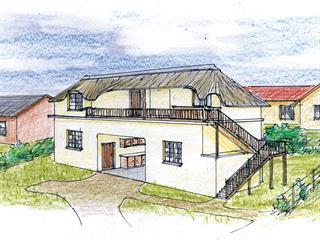Sasol has agreed to pay the Competition Commission R188 million for its involvement in cartel activity – the highest settlement ever reached with the commission. While the commission is satisfied, what of Nutri-Flo, the blender and distributor of fertiliser who laid the initial complaint against Sasol? Robyn Joubert spoke to Nutri-Flo MD Bruce Lyle.
When did your problems with Sasol begin?
It goes back to the 1990s, when I went to the US to study models of community-based fertiliser dealerships. These dealerships buy chemicals from large companies, mix them into granular or liquid fertiliser, sell it to farmers and then apply it on the farms as a service. In South Africa most large chemical companies don’t offer the application service. When Nutri-Flo started supplying condensed molasses solubles (CMS) for sugarcane farmers in Swaziland, Sasol stopped supplying us with nitrogen, until we sold shares to a company of theirs in Swaziland. Our fertiliser-and-application service to sugar farmers in northern KwaZulu-Natal was so successful it made a serious dent in the market share of the province’s fertiliser cartel, made up of Sasol, Kynoch and Omnia. My competitors complained to the cartel and it pushed up the price of nitrogen sold to me.
When did you approach the Competition Commission?
In 2002, Nutri-Flo filed a complaint with the commission for price discrimination, price-fixing, excessive pricing and exclusionary pricing. Sasol found out we’d lodged a complaint and subsequently increased its price to us. Following Sasol’s new pricing, we brought an urgent application before the tribunal to interdict Sasol from implementing the new price list. Coincidentally, on the day of interdicting, the commission issued us with a non-referral.
We subsequently withdrew the first application and immediately initiated a second complaint based on fresh evidence of excessive pricing and exclusionary pricing. The commission investigated the complaint and found merit to it.
What effect did Sasol’s cartel behaviour have on your business?
It priced us to a point where we couldn’t purchase nitrogen from it and our business as it was, died. We were forced to go off on a tangent and have spent the past 10 years developing the business in a different direction. We’ve moved away from inorganic fertiliser into other waste streams.
What other waste streams?
We found CMS, a waste product of the cane-to-ethanol process, which we pioneered and developed as a fertiliser product. It contains a lot of nutrients and organic matter and we’re using it as a carrier for other fertilisers. Obviously the minute you add chemical fertilisers it’s no longer 100% organic, but we’re hoping to get it 100% organic.
Does Sasol’s admission to collusion and price-fixing strengthen your case against it?
It’s been found guilty, so yes, I think it does. But the case is ongoing. I don’t know if Sasol will want to settle with us or if it has another strategy.
Do you believe Sasol when it says the settlement is an important step in cleaning up its act?
I do. I believe it’s just looking for the cheapest route. Sasol can’t afford to take any more chances after what happened in Europe where the competition court fined it €318 million (R3,6 billion) for price-fixing in the paraffin and wax industries. Everyone’s watching them.
Has Sasol’s attitude towards you improved since their admission of guilt?
Sasol doesn’t even talk to us and hasn’t in years. The matter is still in court so it affects our relationship. In the meantime, competition law is meant to remedy the situation so we can carry on with our business.
Can you quantify what effect Sasol’s price-fixing has had on the price of fertiliser?
Our complaint against Sasol related specifically to nitrogen. We proved in court papers that if you consider international prices, retail prices and the cost of manufacture, it pushed the prices over the reasonable market price by between 20% and 40% at various times. Sasol was also involved in price-fixing of phosphate and potassium. Potassium is a wholly imported product and Sasol controls all the imports. This basically means it’s a distributor of potassium and as such I believe the 25% mark-up it puts on it is excessive.
Do you expect its admission of guilt to bring down the fertiliser price and if so, when?
Sasol has already brought its nitrogen prices down and we noticed this in the last quarter of 2008. We can only presume this was a result of its internal investigation at about the same time.
Do you believe Sasol should take some responsibility for pushing up food prices?
Fertiliser is the first part of the food chain and definitely pushed up food prices.
But it’s difficult to pinpoint and hold Sasol solely responsible. Some remedy could be found, perhaps in terms of lowering Sasol’s price to customers for a period, but that would be counter-productive to others.
Foskor was granted conditional immunity from prosecution, but do you think the other parties – Omnia and Kynoch now taken over by Yara – will be able to walk away as well?
I can’t understand how Omnia and Kynoch/Yara can deny their guilt with all the evidence Sasol will produce now. Sasol has, in effect, agreed to become state witness and supply all documentation to prove wrongdoing, which involved the other parties. They all need to be prosecuted because they benefited from the cartel. Even though Sasol was the kingpin, they all need to face the music.
If the Competition Tribunal accepts the R188 million Sasol and the commission agreed on, will you receive a share of it?
No, I don’t know where that goes, but we won’t see any of it. We’re hoping for an early outcome to our case against Sasol, but it seems it will drag on for some time.
The commission has what it wants, but it has cost us, as the complainants, a fortune – in excess of R5 million in legal costs so far. Hopefully, the commission will look after complainants in future, otherwise there’s no point in complaining.
Has the battle against Sasol been worth the time, stress and money?
In one breath I say it’s worth it and in another I say it’s not. I think time will tell. |fw









